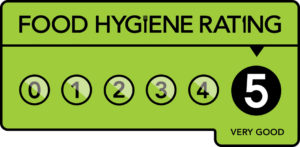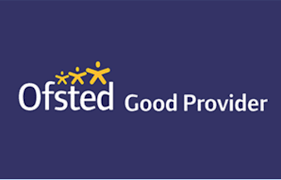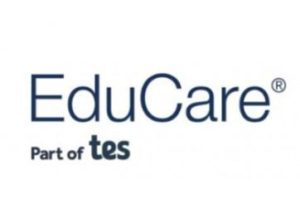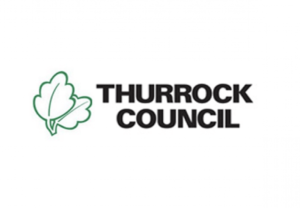-
The Local Offer and Bluebirds Day Nursery’s Special Education Needs and Disability Information
For more information on what is available locally, please click on this link, www.askthurrock.org.uk/localoffer
Bluebirds Day Nursery follows the Thurrock 3 Step SEN Checklist for Early Years to identify and support children with SEN or disabilities and to promote equality of opportunity for children in our care.
When we identify a child as having SEN, we work in partnership with parents to establish the support the child needs. In line with the SEN Code of Practice 2014, we adopt a graduated approach to supporting SEN. The four stages of action are Assess, Plan, Do and Review:
ASSESS
Learning and development is monitored regularly by the key person through observations, Child Progress Records (RAG), 2 Year Progress Check, All About Me and by discussions with parents.
By analysing the above information, the key person identifies the area(s) of learning where expected progress has not been made. A discussion takes place with parents, specific needs are highlighted and a SEN Support Plan is developed with parents, based on appropriate outcomes.
PLAN
The SEN Support Plan identifies specific outcomes for the child, alongside the support and interventions to be put in place; including strategies and activities. The plan will take into account the views of the child (if possible due to child’s age) and will be completed with the parent/carer. Progress will be monitored regularly against outcomes.
DO
The key person/named practitioner works regularly with the child towards the specific outcomes identified; with support from the SENCo to implement the intervention and assess the child’s response to the action taken.
REVIEW
The effectiveness of the support and its impact on the child’s progress will be reviewed regularly with the parent, taking into account the child’s views. Any changes to the outcomes and support for the child, in light of the child’s progress and development will be agreed. If outcomes are not met, support and advice will be sought from the outreach team.
Below are the three steps checklist
STEP 1
We approach the parent/carer to find out if there is any information from home which may be affecting the child’s learning and development. Parents will be given an All About <child’s name> profile at this point to complete with support from us if needed.
STEP 2
We keep a record of a range of observations around the child’s interests, skills and areas of need/difficulties.
STEP 3
As a result of the information collected, we will consider and implement any changes/amendments needed to the environment and routines, and the use of differentiation and visual prompts to support the child.
FREQUENTLY ASKED QUESTIONS
The following are ‘Frequently Asked Questions’ and how Bluebirds will support both the parents and the child identified as having an additional need.
- How would we identify children with special educational needs?
i We track children’s progress termly by RAG and we use this to identify any areas of need.
ii Parents complete ‘Getting To Know Me’ form on entry and we RAG our children early
iii We speak to parents, staff and child’s key person about any concerns they might have and record it.
iv Monitor children through tracker, narrative and short observations.
v Speak to external agencies already involved with child- What should parents/carers do if they think their child may have special educational needs? How can they raise any concerns they have?
i Discuss any concerns you have with your child’s key person either during the daily feedback time or when invited for your termly Parent Evening, where we discuss your child’s learning and development.
ii Meetings are arranged by the setting’s SENCO to discuss any delays/concerns as soon as it’s noticed.
iii The manager is available every day and has open access for parents to share any concern they may have.
- How will staffs support my child and how is this communicated?
i The setting’s SENCO and her assistant oversee and plan the education programme for any child with additional needs.
ii Any child that is identified as having SEN or any additional needs will be given a SUPPORT PLAN. The plan will be completed by both the child’s key person and the assistant SENCO. The plan will have information about the needs of the child, what we plan to do, how, when and how often we will do that and by whom. It also includes how we will review the plan to know the outcome of the strategies in place.
iii The setting’s SENCO will arrange a meeting with the parents and inform them about the Support Plan and give any advice on what can be done at home to support it.
iv If needed, parents will be signposted to attend drop in clinic for further intervention.
v The SENCO or her assistant will liaise with any external agencies already working with child (if any).
vi Where needed, a referral will be made for Early Support and other interventions as appropriate.
vii The SENCO will work with the child’s key person to ensure that the Support Plan is used.
viii Progress will be monitored and evaluated to ensure the child’s needs are met and progression of development is happening.
- How will the curriculum be matched to my child’s individual/specific needs?
i The child’s area of delay/needs will be identified and input from both the parent and Early Support will allow the SENCO and her assistant to develop an individual Support Plan that will help meet the child’s specific needs.
ii In Weekly Plans, activities are SIMPLIED AND EXTENDED to ensure inclusion and differentiation.
iii Children’s learning styles (through characteristics of effective learning) are also used to engage child along with individual interest. This will make learning fun for the child and will improve their interest in the task.
- How often will you meet with me to discuss my child’s progress?
i Your child’s progress will be discussed with you during daily feedback by your child’s key person.
ii On a termly basis, you will be invited to a meeting to discuss their learning and development further. Your opinion will be sought on how your child is progressing at home and what you would like him/her to learn next term.
iii Regular meetings are called between the setting’s SENCO and parents when new Support Plan are created and targets are met.
iv You will receive copies of Support Plans and resources to help support child at home.
v Your input will be taken during meetings and on a daily basis during feedback time.
vi Daily feedback also provides opportunities to share ideas/concerns/achievements.
- How does Bluebirds Day Nursery address my child’s emotional, social and behavioural needs?
i Children are encouraged to be friendly and act positively towards others through positive role model by staff
ii We reward positive behaviour through praise, stickers and rewards.
iii Our children are given opportunities and choices to do the right thing.
iv Negative behaviours are challenged, documented and explained to the child.
v We reward positive behaviour through praise, stickers and rewards.
vi Our children are given opportunities and choices to do the right thing.
vii Negative behaviours are challenged, documented and explained to the child.
- What specialist services and expertise are available at or accessed by the setting?
i The setting access local support if needed for training, advice, setting visits and to discuss support
ii Staff have experienced of dealing with a range of children with varying needs.
iii The managers and SENCO provide support, advice and in-house training as required.
- What training have the staffs supporting children with SEND had or are having?
i The SENCO and the assistant have received training in;
a. The SEND Code of Practice
b. Behaviour management
c. SignAlong
d. Autism Awareness
e. Equality & Diversity
f. Preventing Bullyingii They regularly attend SENCO forum to share tips and advice from local authority Early Years Team and other settings in the borough.
- How does the nursery ensure the inclusion of my child in activities outside the setting including outings?
i All activities outside the nursery are planned to include all children
ii Children needing additional support may be given a one-to-one or parents invited to attend.
iii All outings/trips are risk assessed and adapted to allow all children to participate and gain something from it.
- How accessible is the nursery environment for mobility, behavioural, sensory, health and other issues?
i Our building has wheelchair access and there’s an accessible toilet too
ii The lower ground floor has open plan layout
iii There are no steps on the ground floor.
iv We use visual timetable, choice cards and signs when needed to support children’s learning
v Music therapy is part of our daily routine in all the rooms
vi There are bilingual staff to help translate some languages.
vii We also have access to hire resources from Pyramid centre and Aladdin Cave if the need arises
- How does the nursery prepare and support my child when joining the nursery, transferring to a new nursery or moving to school?
i Before a child starts at Bluebirds, we encourage parents to visit the nursery with the child to look around and have a chat with the manager in order to get to know the family
ii At least two settling-in sessions are booked to gently introduce the child to the nursery.
iii A Getting-to-know-Me form is completed to know more about the child’s routines and help staff know how to meet their needs when they start at the nursery.
iv When your child is moving to another nursery, we will send to them your child’s learning journal and RAG which shows their current stage of learning and development
v When a child is going to school, we arrange to take the child to the new school to meet their new teacher and new friends. The school will be given the TRANSITION DOCUMENT to help the new teacher know the child current level of learning and development and assist to plan for the child’s Next Step when they start.
vi Teachers and/or the SENCO of the new nursery or school is invited to visit the child at our nursery
vii If needed, meeting and discussions are arranged between teachers, parents and nursery staff to support transition
viii Children and parents are prepared for transition by information and circle time activities, role play and discussions.
- How are the setting’s resources allocated and matched to children’s special educational needs?
Any budget/funding received is used to support child’s development. This is looked at in details in line with the area of need of the child, their current development and their interest.
- How is the decision made about what type and how much support my child will receive, and who is involved in that decision?
If the setting feels that additional staff/resources/equipment are needed to help your child meet their full potential. The following steps are followed
i The nursery buys the equipment and resources needed
ii An application is made for Early Support and/or funding if it’s going to be on-going support
iii The Early Years Panel make a decision
iv Parents are informed and allowed to contribute their ideas
v Resources/equipment are purchased and/or staff hired
vi Progress of child is monitored to see the impact of this
vii A review will be done on a regular basis
- How will you ensure that my child and I are involved in discussions about, and planning for their education?
This is done through;
i. Parent evening
ii. Early Support Meetings
iii. Daily Feedback
iv. Newsletters and Parent Questionnaires
v. Support Plan Review
vi. Getting to Know Me & All About Me
vii. Parents input are sought and they are listened to
viii. Comments/Complaints policy and procedure are in place
ix. Various Workshops are arranged for parents
- What should I do if the nursery and I disagree?
i. Please speak to the nursery manager in the first instance to try and resolve the disagreement
ii. Follow our complaint procedure as stated in our Parents Welcome Pack given to you when your child started with us or from the Policy Folder at the entrance of the nursery.
iii. Useful contacts information is on the Parent Notice Board at the entrance of the nursery
iv. For information on ‘Independent Advice Services’ visit the Thurrock’s Local Offer website www.askthurrock.org.uk/localofferor contact the Family Information Service on 01375 652801.
- Who can I contact for further information?
i. Keyperson or Room leader is your first contact
ii. SENCO available -01375768252
iii. Nursery Manager -07581788814
iv. Local Health Visitor & GP
v. Drop-in Sessions at Health Centres or Children’s Centre -01375387894
vi. Early Years Support
vii. Treetops School Outreach Team & Portage Team -01375372723
viii. Local Authority -01375652652
ix. For information on ‘Independent Advice Services’ visit the Thurrock’s Local Offer website www.askthurrock.org.uk/localofferor contact the Family Information Service on 01375 652801.
Useful Resources for SEND Workforce Development
Author/Source
Type of resources
Link
SEN & Disability,
SEND Code of
Practice 0-25
NASEN website
On-line CPD,
Publications/resources
http://www.sendgateway.org.uk/
Council for disabled children (CDC)
An umbrella organisation for the disabled children’s sector
e-learning, bulletin, posters, publications, books, CDC, resources, Factsheets. leaflets
Speech Language and
Communication
Difficulties
The
Communications
Trust website
Booklets, Information Sheets, Checklists
https://www.thecommunicationtrust.org.uk/resources /resources/
NELFT – Speech & Language Support
NHS – Thurrock Website
Service information and contact details
Autism Spectrum
The Autism Education Trust website
Booklets, Information Sheets, Checklists
Specific Learning
Difficulties (SpLD)
Including Dyslexia
The Dyslexia SpLD Trust website
Booklets, Information Sheets, Checklists
Resources For Visual
& Hearing Impaired
Pupils – St. Clere’s
School
Hearing Impaired Unit
& Visual Impaired Unit
Thurrock resource base for deaf and hearing impaired students
Booklets, Information
Sheets, Checklists,
Equipment
http://www.st-cleres.thurrock.sch.uk/about-st cleres/hearing-impaired-unit-2/
http://www.st-cleres.thurrock.sch.uk/about-st cleres/visually-impaired-unit/
The National Sensory
Impairment
Partnership
Visual impairment, Hearing impairment, multi-sensory impairment.
Booklets, Information Sheets, Checklists
Care and support for deaf blind children and adults policy guidance
Gov.uk
Social care for
Deaf blind Children and
Adults guidance
https://www.gov.uk/government/publications/deafbli nd-people-guidance-for-local-authorities
Early Support
National Children’s Bureau website
Booklets, Information Sheets, CPD slides
TES Resources
Information resources
SEN Magazine
Magazine
Information
CAPA Thurrock
Local Parent carer participation group
Works in partnership with professionals and practitioners within health, education and social care
Scope
Charity
Support and Information
Special Educational
Needs
SEND Video Links
Information & Advice
http://www.specialeducationalneeds.co.uk/videos cartoons.html
Ofsted YouTube
Ofsted
Information & Advice
Education.gov.uk
SEND Information Videos
Guidance
https://www.youtube.com/watch?v=Gi sC1IyxR8&feature=em-uploademail&utm_source
DFE Local Offer Video
DFE
On-Line
Information and Guidance
- Home
- About Us
- -- Facilities
- -- Nursery Information
- -- Nursery Opening Times & Sessions
- -- Gallery
- -- Healthy Eating
- Parents Resources
- -- BLOCK 1
- ---- Terms and Conditions
- ---- Privacy Notice - GDPR
- ---- Policies & Procedures
- -- BLOCK 2
- ---- Testimonials
- ---- Newsletter
- ---- OFSTED Reports
- -- BLOCK 3
- ---- Parent Guides
- ---- Local Offer
- Joining Us
- Vacancies
- Contact Us







